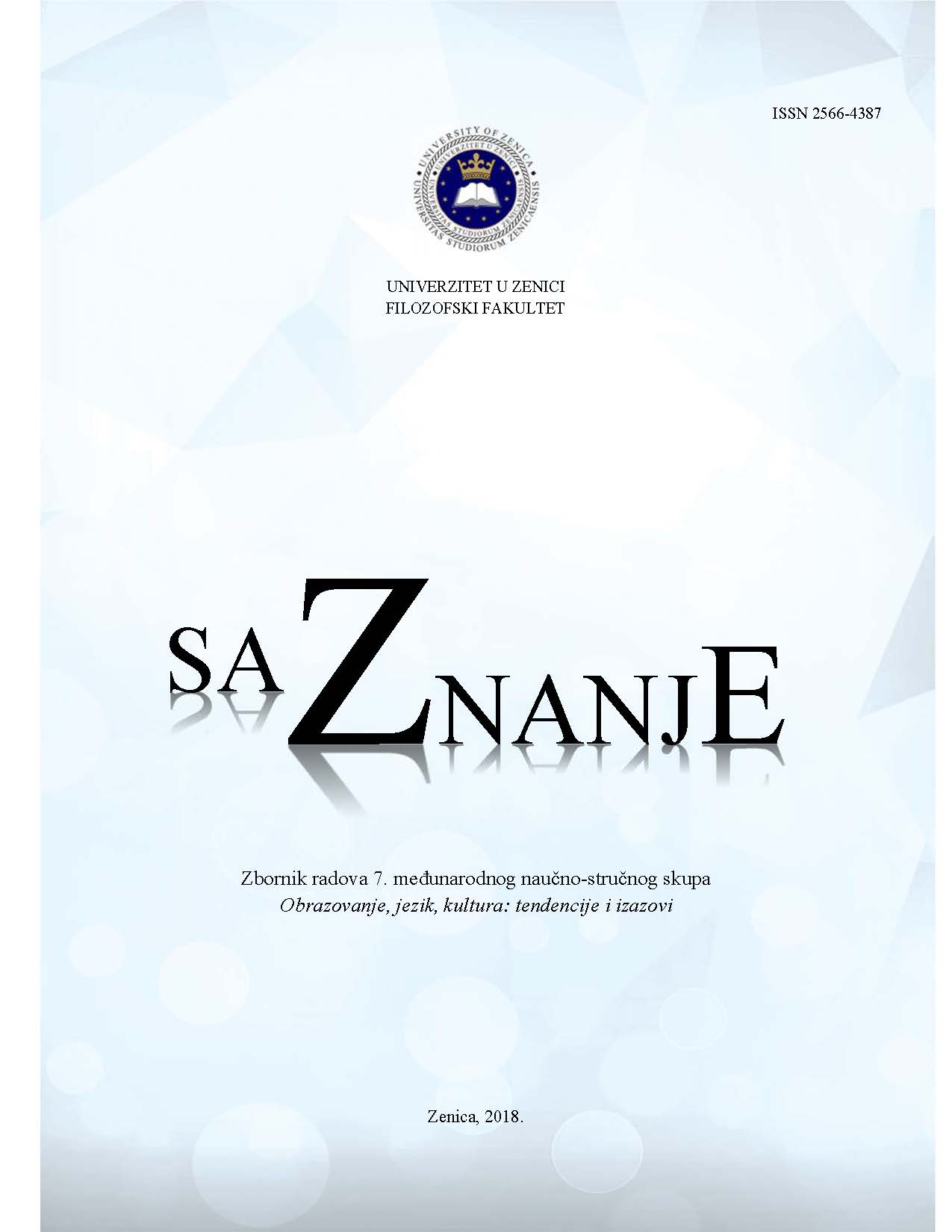OD STIGME DO ŠKOLSKOG (NE)USPJEHA
FROM STIGMA TO (NON)ACHIEVEMENT IN SCHOOL
Author(s): Šejla Bjelopoljak, Lejla KafedžićSubject(s): Education, School education, Educational Psychology, Inclusive Education / Inclusion
Published by: Filozofski fakultet, Univerzitet u Zenici
Keywords: individualization; inclusion; evaluation; prejudice; school;
Summary/Abstract: In educational communities opinion that inclusion is only a synonym for including children with visible disabilities in so-called regular education still prevails. However, inclusion is directly linked to human rights model which states that every person has a birth given right regardless of any distinctive features that may have. The idea of an inclusion as a process which refers to everyone is a path that will ensure sensibility of society and prompter changes in achieving human rights. In accordance with this, inclusion represents an approach to education which lies on implantation of basic human rights of everyone involved in education. This would ensure a quality education, that is available, non-discriminatory and in child’s best interest. To talk about children with developmental disabilities in the context of inclusion, would also ensure quality education that is based on the implementation of human rights and through which is learning, participation, contextual observation, individualization, proper evaluation and other aspects of this process ensured. One of the challenges for staff in an educational institution is the individualizations and evaluation of students (with disabilities). Stereotypes and prejudice still prevail in these process, it is the subject of Halo effect and it questions students’ achievements and their non-achievements in school.In educational communities opinion that inclusion is only a synonym for including children with visible disabilities in so-called regular education still prevails. However, inclusion is directly linked to human rights model which states that every person has a birth given right regardless of any distinctive features that may have. The idea of an inclusion as a process which refers to everyone is a path that will ensure sensibility of society and prompter changes in achieving human rights. In accordance with this, inclusion represents an approach to education which lies on implantation of basic human rights of everyone involved in education. This would ensure a quality education, that is available, non-discriminatory and in child’s best interest. To talk about children with developmental disabilities in the context of inclusion, would also ensure quality education that is based on the implementation of human rights and through which is learning, participation, contextual observation, individualization, proper evaluation and other aspects of this process ensured. One of the challenges for staff in an educational institution is the individualizations and evaluation of students (with disabilities). Stereotypes and prejudice still prevail in these process, it is the subject of Halo effect and it questions students’ achievements and their non-achievements in school.
Journal: saZnanje
- Issue Year: 1/2018
- Issue No: 1
- Page Range: 26-34
- Page Count: 9
- Language: Bosnian

